Many of us have heard about the wonders that vacuum-sealed food can provide.
But just how long does vacuum-sealed meat last in the refrigerator?
You might be wondering— is it really as good as traditional methods for preserving food, and if so, just how much time do you get to use it before it goes bad?
We’ll explore all these questions today to help make sure you are storing your meats correctly!
How Long Can Vacuum Sealed Meat Last In The Fridge?
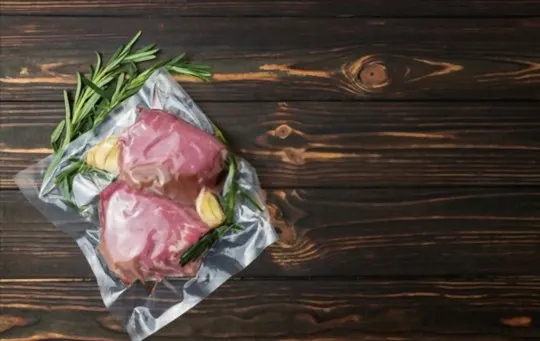
Vacuum sealed meat can last for a very long time in the fridge – up to 5 times longer than meat that is not vacuum sealed.
This is because vacuum sealing removes all of the oxygen from the bag, which prevents bacteria from growing and spoiling the meat.
One thing to keep in mind, however, is that vacuum sealed meat will continue to age even in the fridge.
So if you’re planning on storing it for a long period of time, it’s best to freeze it instead.
Vacuum sealed meat can last for up to 2 years in the freezer.
If you do plan on storing vacuum sealed meat in the fridge, be sure to use it within 1-2 months for best quality.
After that, the taste and texture of the meat will start to decline.
What Are The Benefits Of Vacuum Sealing Meat?
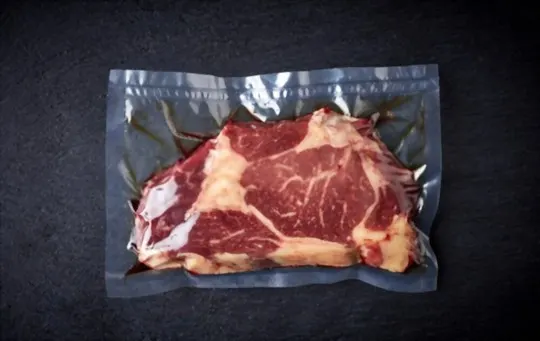
There are many benefits of vacuum sealing meat.
One of the main benefits is that it helps to preserve the meat.
Vacuum sealing meat can help to keep it fresh for up to five times longer than if it were not vacuum sealed.
This is because the vacuum seal prevents oxygen from coming into contact with the meat, which can cause it to spoil.
Another benefit of vacuum sealing meat is that it can help to lock in flavor.
When you cook vacuum sealed meat, all of the juices and flavors stay locked inside, resulting in a juicier and more flavorful meal.
Additionally, vacuum sealing meat can also help to tenderize it.
This is because the lack of oxygen causes the muscle fibers to break down, resulting in a more tender piece of meat.
If you are looking for a way to keep your meat fresh for longer and lock in flavor, then vacuum sealing is a great option.
How Do You Properly Store Vacuum Sealed Meat?
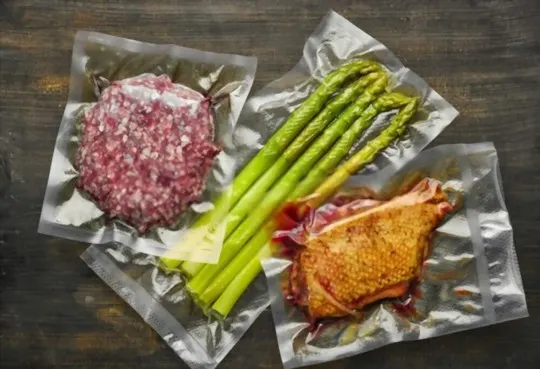
If you’re vacuum sealing meat, the first thing you need to do is make sure it’s properly cleaned.
Any bacteria on the surface of the meat can cause it to spoil quickly, so it’s important to start with a clean product.
Once the meat is clean, you’ll need to choose the right type of storage container.
Glass jars and plastic bags are both good options for vacuum sealed meat.
Once you’ve chosen your storage container, you’ll need to place the meat inside and seal it tightly.
If you’re using a glass jar, you can use a vacuum sealer to remove all the air from the jar before screwing on the lid.
If you’re using a plastic bag, you’ll need to use a straw to suck out all the air before sealing the bag.
Once your meat is properly sealed, it can be stored in the fridge for up to six months.
Vacuum sealed meat will last even longer if it’s stored in the freezer – up to two years.
Just make sure to label your meat so you know when it was sealed and how long it’s been in storage.
How Can You Tell If Vacuum Sealed Meat Has Gone Bad?
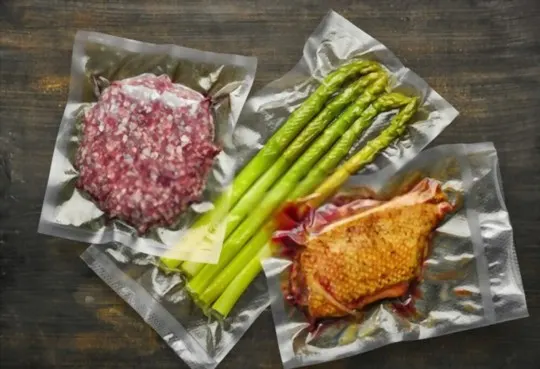
If you’re not sure how long your vacuum sealed meat has been in the fridge, it’s always better to err on the side of caution and throw it out.
However, there are a few tell-tale signs that your meat has gone bad, even if it’s still sealed.
The first thing you’ll notice is the smell.
If your meat has gone bad, it will have a distinctly unpleasant odor that will be very strong, even through the seal.
Another sign is if the meat has changed color.
Vacuum sealed meat should be a consistent color throughout; if you see any patches that are significantly darker or lighter than the rest, it’s probably best to toss it.
Finally, if the meat feels slimy or sticky to the touch, it’s definitely time to get rid of it.
If you’re ever in doubt, it’s always better to be safe than sorry when it comes to vacuum sealed meat.
If there’s any chance that it might be bad, don’t take the risk and throw it out immediately.
What Are Some Tips For Extending The Shelf Life Of Vacuum Sealed Meat?
When it comes to storing meat, vacuum sealing is one of the best ways to extend its shelf life.
When done correctly, vacuum sealed meat can last for weeks or even months in the fridge.
Here are some tips to help you get the most out of your vacuum sealed meat:
- Store the vacuum sealed meat in the coldest part of your fridge, such as the bottom shelf.
- If possible, store the vacuum sealed meat in a separate fridge dedicated solely to storing meat. This will help ensure that the meat stays as fresh as possible.
- Inspect the vacuum seal regularly to make sure that it is intact and there are no leaks.
- Use the oldest pieces of vacuum sealed meat first to ensure that they don’t go bad before you have a chance to eat them.
Conclusion
In conclusion, vacuum sealed meat can last a long time in the fridge, but it is important to store it properly.
Vacuum sealing meat can extend its shelf life, but you should still check it periodically for signs of spoilage.
If you have any tips for storing vacuum sealed meat, please share them in the comments below.
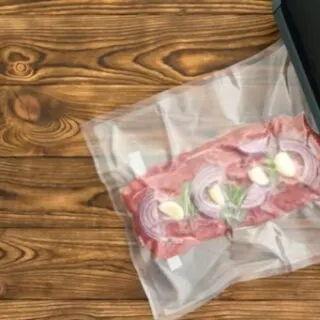
How Long Can Vacuum Sealed Meat Last In The Fridge?
Ingredients
- Vacuum sealed meat
- Air-tight containers or Ziplock bags
- Labels and markers
Instructions
- Store your product in an labelled container in a cool, dark place like the pantry or fridge.
- If your food is frozen, allow it to thaw in the fridge before cooking.
- Make sure to look for signs that your food has gone bad before eating it.

Carrie is a food writer and editor with more than 15 years of experience. She has worked for some of the biggest names in the food industry, including Bon Appétit, Food & Wine, and Martha Stewart Living.
As the Editor in Chief of IntroChicago.com, Carrie oversees all of the content on the site. She also manages the team of contributing writers and editors, who help to create delicious recipes, helpful tips, and informative articles that you’ll find on the site.
A native of the Chicago area, Carrie is passionate about all things food. She loves trying new restaurants and experimenting with new recipes in her kitchen. She’s also a graduate of the Culinary Institute of America, so she knows a thing or two about food!
